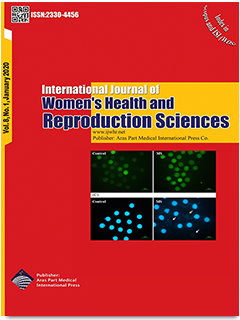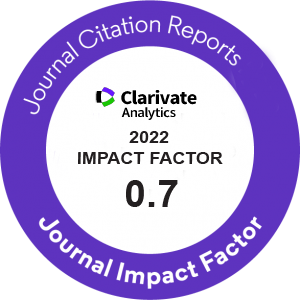| Original Article | |
| Chronic Stress Diminishes the Oocyte Quality and In Vitro Embryonic Development in Maternally Separated Mice | |
| Leila Dehdehi1, Marefat Ghaffari Novin1,2, Yousef Sadeghi1, Mohammad Amin Abdollahifar1, Seyed Ali Ziai3, Hamid Nazarian2,1 | |
| 1Department of Biology and Anatomical Sciences, School of Medicine, Shahid Beheshti University of Medical Sciences, Tehran, Iran 2Infertility and Reproductive Health Research Center, Shahid Beheshti University of Medical Sciences, Tehran, Iran 3Departmentof Pharmacology, School of Medicine, Shahid Beheshti University of Medical Sciences, Tehran, Iran |
|
|
IJWHR 2020; 8: 029-036 DOI: 10.15296/ijwhr.2020.04 Viewed : 2708 times Downloaded : 2190 times. Keywords : Maternal separation, Oocyte maturation, Embryonic development, Oxidative stress |
|
| Full Text(PDF) | Related Articles | |
| Abstract | |
Objectives: This study aimed to use a valid mouse model of chronic stress like a maternal separation (MS) to determine the effect of early life chronic stress on oocyte quality and subsequent in vitro embryo development. Materials and Methods: This study was based on case-control, interventional, and quantitative applied research. Mice were subjected to 180 minutes of MS stress paradigm at postnatal day (PND) 2?14. Then, corticosterone and serotonin levels were measured in the serum and ovary samples, respectively. In addition, relevant behavioral tests including an elevated plus maze (EPM) and open field test (OFT) were performed for evaluating anxiety-like behaviors at PND 48. Finally, oocyte number, nuclear maturation, reactive oxygen species (ROS) and intracellular glutathione (GSH) levels, as well as in vitro embryo development were evaluated as well. Results: Our findings showed that MS provokes anxiety-like behavior and increases serum corticosterone concentration (P < 0.05). On the other hand, the number of oocytes (P < 0.001), nuclear maturation (P < 0.05), and the concentration of ovarian serotonin (P < 0.01) decreased following MS. Further, the fertilization (P < 0.001) and blastocyst rate (P < 0.05) significantly decreased in MS mice. Eventually, chronic stress led to a reduction in the level of GSH (P < 0.01) while it increased the level of ROS production (P < 0.001). Conclusions: Chronic stress through, at least in part, oxidative stress in the oocytes of mice undergoing MS paradigm negatively affected the oocyte competency and embryo development. |
Cite By, Google Scholar
Google Scholar
PubMed
Online Submission System
 IJWHR ENDNOTE ® Style
IJWHR ENDNOTE ® Style
 Tutorials
Tutorials
 Publication Charge
Women's Reproductive Health Research Center
About Journal
Publication Charge
Women's Reproductive Health Research Center
About Journal
Aras Part Medical International Press Editor-in-Chief
Arash Khaki
Mertihan Kurdoglu Deputy Editor
Zafer Akan























